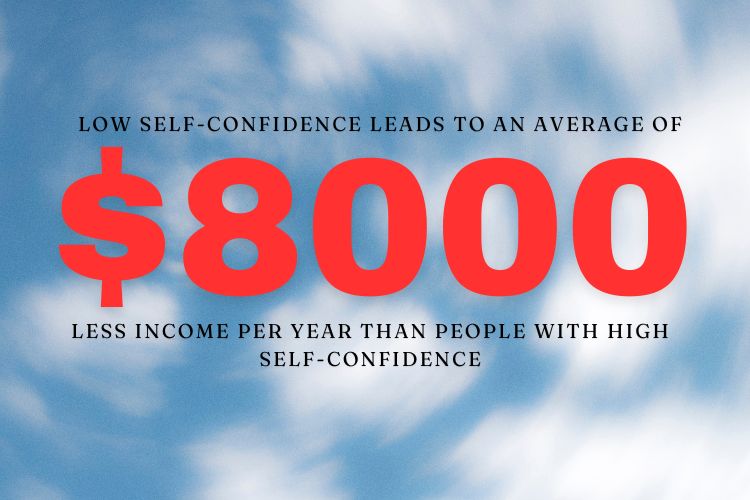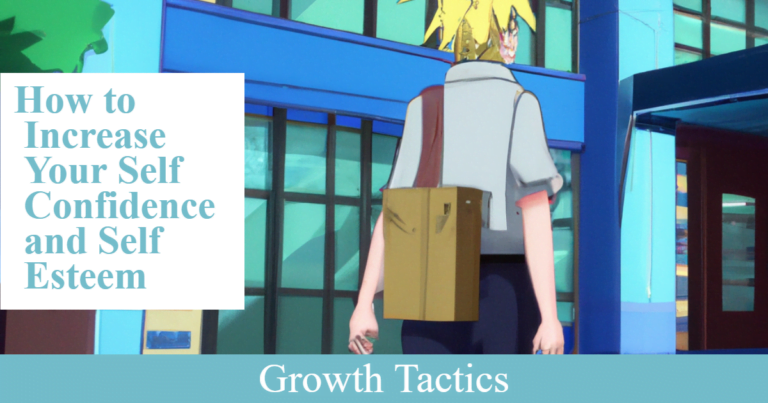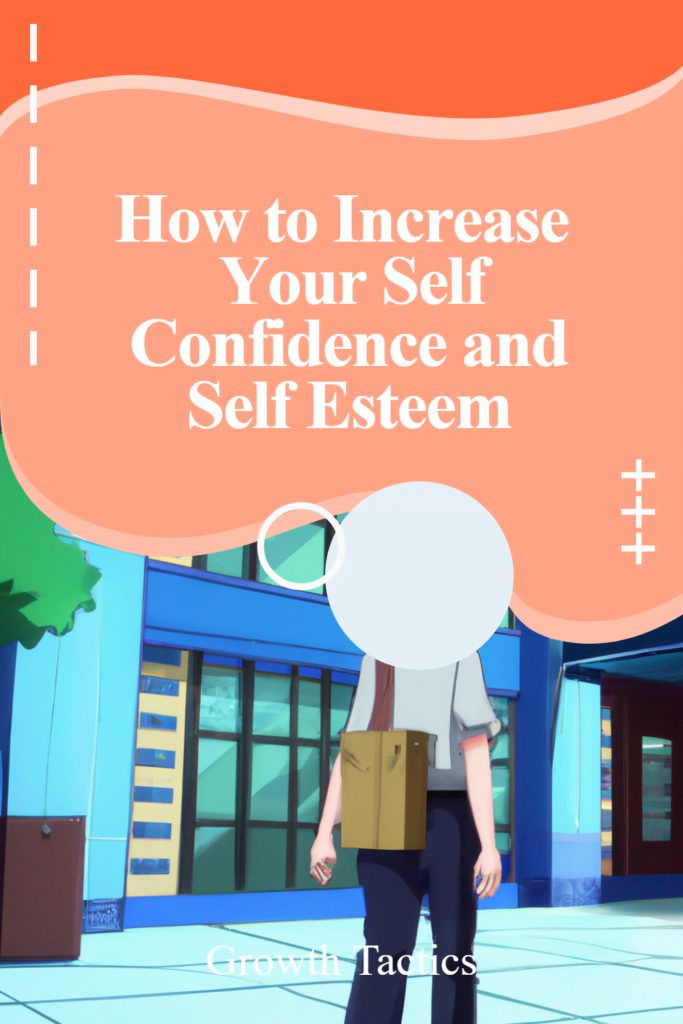If you’ve ever felt unsure of yourself or struggled with feeling good about who you are, you’re not alone. Building confidence and self-esteem is a journey many of us go through. In this article, I’ll share some effective strategies that have helped me become more confident. These are not just quick tips, but real, practical steps that can help you feel better about yourself and tackle life’s challenges with more assurance.
Jump To Section
Why Is Confidence Important?

Confidence is like a secret ingredient that makes life’s journey smoother and more enjoyable. Imagine trying new things, meeting new people, or facing tough situations. Now, picture doing all that with a strong belief in yourself. Sounds better, right? That’s what confidence does—it helps you step into the world with your head held high, ready to take on whatever comes your way.
When you’re confident, you’re more likely to try new experiences, which can lead to success and happiness. It’s the spark that encourages you to apply for that job, start a new hobby, or talk to someone new. Confidence is believing in your ability to do things well, and this belief can lead to taking actions that make your life richer and more exciting.
But it’s not just about achieving big things. Confidence also makes everyday interactions easier and more pleasant. Confident people tend to have better relationships because their positive self-view makes them more open and less defensive. They can express themselves clearly, listen to others, and handle disagreements in a healthy way.
Additionally, having confidence influences how others perceive you. People are naturally drawn to confident individuals because they radiate positivity and assurance. This isn’t about being loud or showy; it’s about quietly knowing your value, which makes others see it too.
In short, confidence is essential because it:
- Opens doors to new opportunities: With confidence, you’re more likely to take the steps that lead toward realizing your dreams.
- Improves resilience: When you believe in yourself, you can bounce back from setbacks faster.
- Enhances relationships: Confidence allows for healthier and happier connections with others.
- Positively impacts how others see you: A confident person is often viewed as more capable, trustworthy, and attractive.
Without confidence, fear and doubt can hold you back from living fully. But the good news is, confidence can be built and strengthened over time with practice and patience. By boosting your confidence, you’re essentially giving yourself the permission to live your best life. Let’s explore how to do just that in the following sections.
Understanding the Difference Between Self-Confidence and Self-Esteem
Self-confidence and self-esteem are closely related concepts, but they address slightly different aspects of our sense of self. Understanding the distinction between the two can help us work on each more effectively, enhancing how we feel and interact with the world around us.
What is Self-Esteem?
Self-esteem is about how much you value yourself, regardless of your abilities or accomplishments. It’s your overall opinion of yourself—how much you appreciate and like yourself. High self-esteem means you generally think you are a good person who deserves happiness. It’s a deep-seated belief about your worth, which does not fluctuate much even when external circumstances change.
What is Self-Confidence?
Self-confidence, on the other hand, refers to your belief in your abilities to accomplish tasks and handle situations. It can vary significantly depending on the context. For instance, you may feel highly confident in your ability to do well at a sport you’ve been practicing for years but much less confident in your ability to give a public speech if you’ve never done it before.
How They Interact
While self-confidence and self-esteem are distinct, they definitely influence each other and often overlap:
- High self-esteem can contribute to greater self-confidence. When you value yourself and feel secure in your overall worth, you’re more likely to trust your abilities and take on new challenges.
- Building self-confidence in various areas can improve self-esteem. Achievements and competence in specific tasks can make you feel more capable overall, boosting your perception of your value.
Individuals might experience high self-esteem but low self-confidence in particular areas, or vice versa. For example, someone could believe they are a good person worthy of happiness (high self-esteem) but may doubt their capabilities in a new job role (low self-confidence).
Why It Matters
Recognizing the difference helps us target our personal development efforts more precisely. If you struggle with self-esteem, you might focus on activities that foster a sense of intrinsic worth, like affirmations or therapy. If you’re battling with self-confidence in specific areas, practical experience, and skill-building exercises can be more beneficial.
Understanding and developing both your self-esteem and self-confidence are crucial steps toward a richer, more fulfilling life. Each plays a role in making you feel more secure, capable, and prepared to pursue your dreams and maintain healthy relationships. In the next sections, we’ll explore ways to enhance both these aspects, helping you navigate life with greater assurance and positivity.
The Role of Self-Compassion in Building Self-Confidence
Self-compassion plays a pivotal role in building self-confidence. It’s the practice of treating yourself with the same kindness, concern, and support you would offer to a good friend. When we encounter challenges or fail, our inner critic can be unforgiving, but applying self-compassion allows us to view these situations with understanding and kindness.
By being compassionate towards ourselves, we recognize that perfection is unattainable and that setbacks are part of being human. This mindset encourages a more positive and realistic self-view, which directly boosts our self-confidence. When we know it’s okay to make mistakes, we’re more likely to try new things and step out of our comfort zones. Self-compassion thus lays a foundation for a robust, self-confident attitude by promoting a healthy, forgiving relationship with ourselves.
Navigating Through Low Self-Esteem
Low self-esteem can be a challenging obstacle, but it’s not insurmountable. The journey to boosting your self-esteem begins with awareness—recognizing the critical inner voice that tells you you’re not good enough and finding ways to challenge it. Start by listing your strengths and achievements, no matter how small they seem. This serves to remind you of your worth and capabilities.
Building meaningful connections with others who uplift and support you can also enhance your self-esteem. Positive reinforcement from loved ones can make a significant difference. Additionally, engaging in activities that make you feel good about yourself—whether it’s pursuing a hobby, volunteering, or exercising—can improve your sense of self-worth. Remember, improving self-esteem takes time; be patient and consistent in your efforts.
Tips to Build Self-Confidence Through a Positive Self-Image
Creating a positive self-image is vital for boosting self-confidence. This involves paying attention to your inner dialogue and replacing negative thoughts with positive affirmations. Remind yourself of your qualities and achievements every day. Adjusting your posture, maintaining eye contact, and practicing a confident handshake can also make you feel more self-assured.
Additionally, dress in a way that makes you feel good about yourself. When you look good, you feel good, and this can significantly enhance your confidence in social or professional settings. Lastly, invest time in understanding yourself—your values, goals, and passions. This deeper self-awareness will naturally foster a more positive and confident self-image.
Boost Your Confidence by Setting Achieachable Goals
Setting and achieving goals is a powerful way to boost your self-confidence. Start with small, achievable goals to create a pattern of success. As you tick these off your list, your belief in your ability to succeed grows. Make sure your goals are specific, measurable, and time-bound, and remember to celebrate your achievements, no matter how minor they may seem.
Gradually increase the difficulty of your goals to stretch your abilities. This practice not only builds confidence in specific skills but also reinforces your overall self-belief. The satisfaction of achieving a challenging goal is incredibly rewarding and can significantly boost your confidence levels.
The Benefits of Self-Care on Wellbeing
Self-care is crucial for maintaining both physical and mental health. It involves taking time out to care for yourself in a way that ensures you are healthy, happy, and can function at your best. This can include exercising regularly, eating nutritious foods, getting enough sleep, and engaging in activities that relax and rejuvenate you.
Regular self-care boosts your well-being, which in turn enhances your self-esteem and confidence. When you feel good physically and mentally, you’re more likely to have a positive outlook on life. Additionally, taking time for self-care sends a message to yourself that you are worthwhile and deserving of this care, further reinforcing self-love and confidence.
How Physical Activity Affects Your Confidence Levels
Physical activity has a profound impact on self-confidence. Engaging in regular exercise doesn’t just improve your physical health—it enhances your mental state, too. Exercise releases endorphins, the body’s natural mood lifters, which can help alleviate stress and promote a sense of well-being. As you reach your fitness goals, whether it’s running a certain distance, lifting heavier weights, or achieving a new yoga pose, you gain not only physical strength but also a stronger belief in your capabilities.
Moreover, physical activity can lead to improvements in body image. As you notice positive changes in your strength, stamina, and appearance, your self-image and confidence levels improve. This can create a positive feedback loop: the better you feel about yourself, the more motivated you become to continue your fitness journey, further boosting confidence.
Learning New Skills to Increase Your Confidence
The process of learning new skills is inherently empowering and can significantly boost your self-confidence. Each new skill you acquire makes you feel more capable and versatile, contributing to your sense of self-efficacy. Whether it’s learning a new language, mastering a musical instrument, or coding, the journey from beginner to proficient is filled with small victories. These achievements, no matter how small, reaffirm your ability to set goals and meet them.
Engaging in continuous learning also broadens your horizons and introduces you to new experiences and communities, further enriching your life. It’s important to approach learning with a growth mindset—seeing challenges as opportunities to grow rather than insurmountable obstacles. This mindset can extend to other areas of your life, enhancing your overall confidence.
Facing Your Fears and Taking Risks
Facing your fears and taking calculated risks is a powerful way to build self-confidence. Fear often holds us back from pursuing opportunities that could lead to growth and fulfillment. By confronting your fears, you demonstrate to yourself that you are capable of overcoming obstacles, leading to a significant boost in confidence.
Taking risks, when done thoughtfully, can lead to rewarding outcomes. It’s essential to evaluate the potential benefits and drawbacks and to prepare as much as possible. Success in these ventures reinforces your belief in your judgment and capabilities, while failure offers valuable lessons and resilience-building experiences.
The act of stepping out of your comfort zone, regardless of the outcome, is a victory in itself. It proves that you are willing to challenge yourself and can handle uncertainty—a crucial aspect of confidence. Every time you face a fear or take a risk, you build a stronger, more confident version of yourself, ready to tackle even bigger challenges.
Conclusion
Building self-confidence and enhancing self-esteem is a journey fraught with challenges. Yet, it’s also ripe with opportunities for personal growth and fulfillment. By nurturing self-compassion, setting achievable goals, practicing self-care, and embracing challenges, you can foster a resilient, confident self that’s ready to face the world. Remember, self-confidence is not a fixed attribute but a quality that you can enhance over time. I thank you for joining me on this journey, and here’s to your continued growth and confidence.


